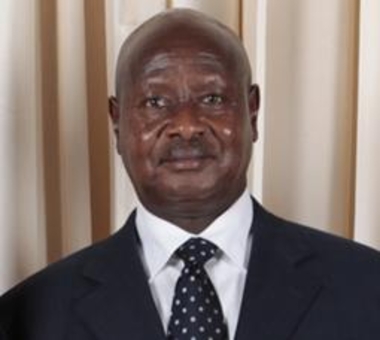Uganda slapped with aid cuts over anti-gay law

Kampala, Uganda (AP) — Uganda's government has been hit with substantial aid cuts after the president enacted a severe anti-gay measure over which some Western governments had warned of consequences.
At least three European countries are withdrawing millions in direct support to Uganda's government, which depends on donors for about 20 percent of its budget.
The Dutch government said in a statement seen Thursday that it is suspending aid to Uganda's government but will continue supporting non-governmental groups, joining the governments of Norway and Denmark in taking such action. Norway is withdrawing at least $8 million but will increase its support to human rights and democracy defenders, while Denmark is restructuring aid programs worth $8.64 million away from the Ugandan government and over to private actors and civic groups.
Jim Mugunga, a spokesman for Uganda's Finance Ministry, said the government is waiting for official communication of the aid cuts.
Washington has also signaled it could cut aid to Uganda over an anti-gay measure the White House described as "abhorrent."
U.S. Secretary of State John Kerry on Wednesday compared the law to oppressive government crackdowns on German Jews in the 1930s and black South Africans during apartheid, saying he was going to direct American ambassadors to look at "how we deal with this human rights challenge on a global basis."
Ugandan officials have been reacting with scorn, saying that Western governments can keep their money.
Uganda's president on Wednesday told African leaders attending a summit in the Congolese capital of Kinshasa that although the matter of gay rights is "dear" to the West, "even the homosexuals need electricity."
President Yoweri Museveni enacted the bill on Monday, drawing widespread condemnation from the United Nations, rights watchdog groups, as well as some of the East African country's development partners. In signing the bill, Museveni said he wanted to deter Western groups from promoting homosexuality in Africa. The anti-gay law is widely popular in Uganda, and some analysts believe Museveni's enactment of the bill boosts his popularity ahead of presidential elections in 2016.
Ofwono Opondo, a spokesman for Uganda's government, said Thursday that the aid cuts show Ugandans "that the world does not owe them a living."
"It's actually a trap for dependence," he said, talking about donor support. "It's actually good that they removed the aid, so that we can live within the means we have."
Uganda's new anti-gay law calls for life imprisonment for those convicted of engaging in gay sex. It also creates the offenses of "conspiracy to commit homosexuality" and "aiding and abetting homosexuality," both of which are punishable by seven years behind bars. Those convicted of "promoting homosexuality" face similar punishment.
by Rodney Muhumuza, Associated Press
Copyright 2014 The Associated Press. All rights reserved. This material may not be published, broadcast, rewritten or redistributed.
The Gayly – February 27, 2014 @ 12:40pm





